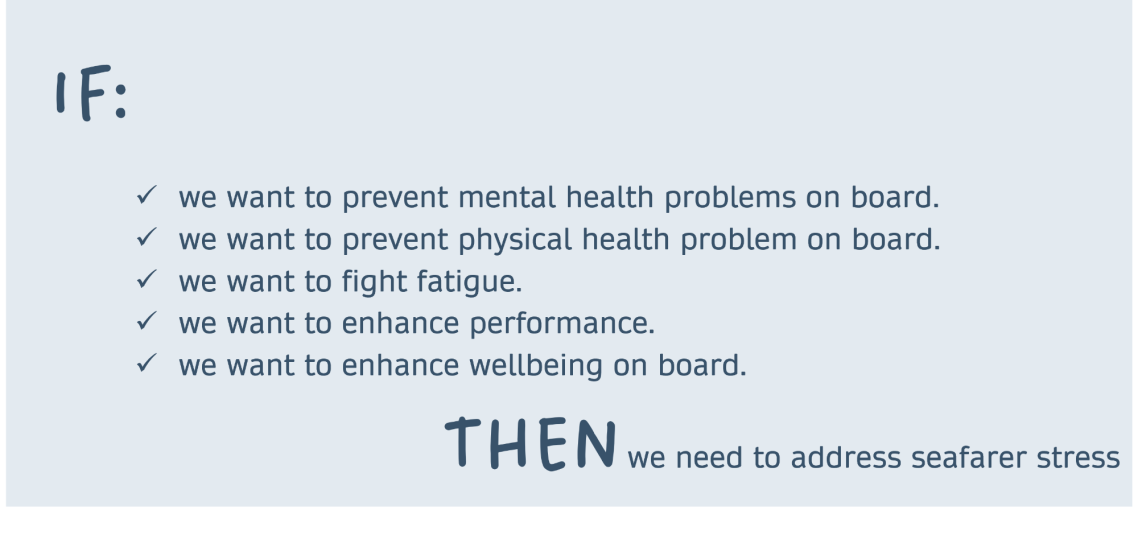Seafarer Stress: A Health and Safety Issue
Seafarer Stress: A Health & Safety Issue
Safety4Sea Crew Welfare week, June 26th 2024
Download a pdf of the slides here:
Seafarer Stress Risk Assessment Packages:
It is critical that the industry starts to pay attention to stress.....
Stress contributes to heart disease, high blood pressure, diabetes, depression, anxiety, fatigue, poor concentration, frequent minor illness, ulcers, gastrointestinal problems... the list goes on.
Stress is not a mental health problem. Stress is normal. BUT prolonged and or repeated stress contributes to both mental and physical health problems.
The time to change study, found that 66% of people with a diagnosable mental health problem say that work related stress contributed to it. About 50% of people who are highly stressed also struggle with depression and about 60% with anxiety.
The marine benefits study showed 28% of seafarers are struggling with a diagnosable level of depression and 24% a diagnosable level of anxiety. The ITF Seafarer’s Trust & Yale University Study conducted in 2019 says much the same.
Simple logic would tell us:

Stress Management is a two-sided approach. We need to look at the causes of stress and support good coping skills. Both sides are equally important.
Psychoeducation such as the Managing Stress and Sleeping Well at Sea guide can offer seafarers tools and strategies for coping with stress.
Written resources can be backed up by training in stress management skills, coping and resilience. Ask us about the training programmes we offer!
However, many seafarers are already highly resilient, they are adept problem solvers, they often cope well and act professionally in the toughest of situations. Coping skills are important, but we must not place all the responsibility on the seafarer. It’s the employer's obligation to protect employees from stress.
Stress is a Health and Safety Issue
Stressors come in different forms, some are inherent in a life at sea, like being away from friends and family for extended periods of time. But some stressors can be addressed.
Health and Safety approaches identify risks and implement solutions to eliminate or reduce risks where possible and ensure procedures are in place where not.
- Do a stress risk assessment.
- Make a record of any risks identified.
- Take steps to eliminate or reduce the risks.
- Check on the impact.
What can Industry Do?
Interested in our Packages?
Contact us here to register your interest:
Please indicate if you'd like:
Tools to help you carry out your own risk assessment with your fleet (Silver package)
Support to implement your own risk assessment (Gold Package)
or
An Indpendent assessment tailored to your company and oerpational context, carried out for you with bespoke recommendaitons for action (Platinum package).
or to Book a Discovery call and discuss the options.

©Waypoint Maritime CiC Copyright.
All rights reserved.
We need your consent to load the translations
We use a third-party service to translate the website content that may collect data about your activity. Please review the details in the privacy policy and accept the service to view the translations.
